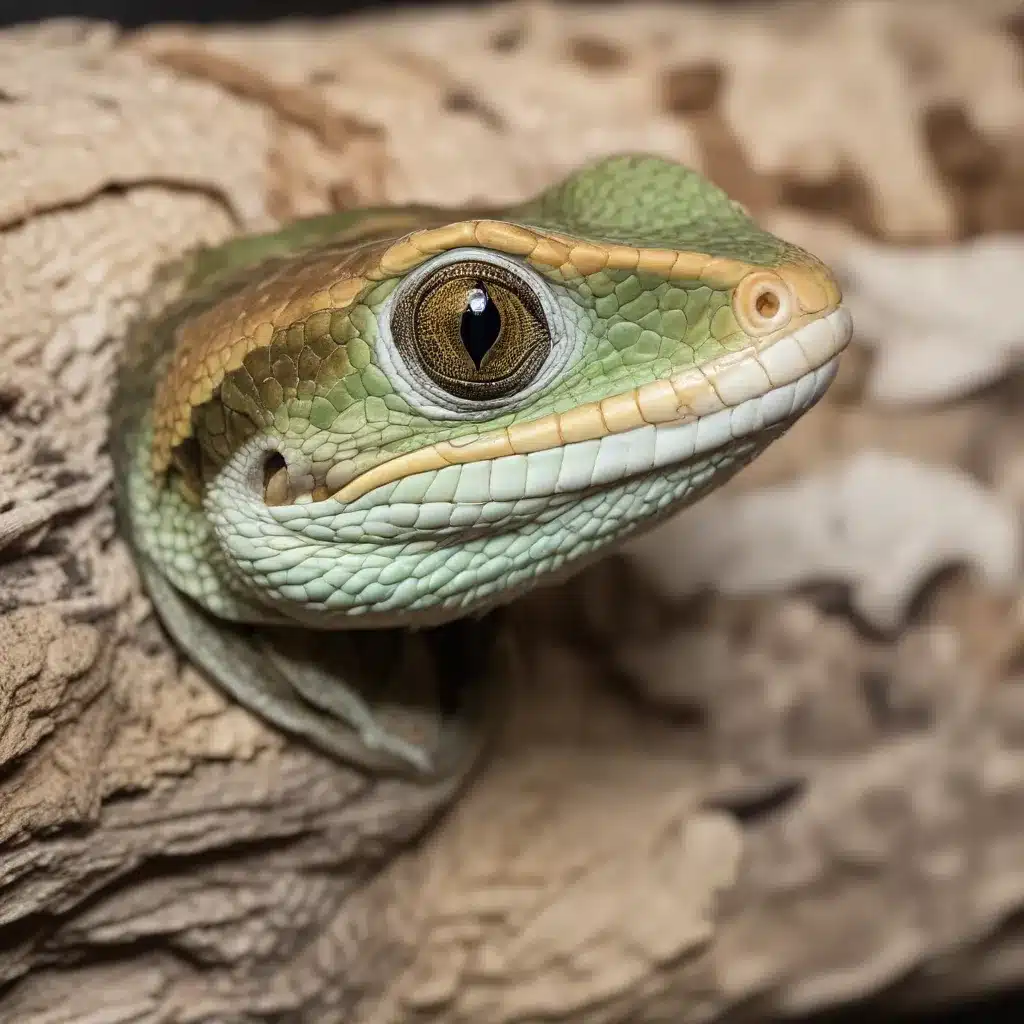
Prioritizing Reptile Health and Wellness
Keeping exotic reptiles as pets requires a deep understanding of their unique healthcare needs and a commitment to providing them with the best possible living conditions. As dedicated reptile enthusiasts, we must ensure that our captive animals receive the appropriate level of care, from preventative measures to specialized treatments. This comprehensive approach to reptile wellness is essential for maintaining the overall health and well-being of these fascinating creatures.
Reptile health is a multifaceted topic that encompasses a wide range of considerations, including proper habitat setup, appropriate dietary requirements, and proactive disease prevention. By adopting a holistic perspective, we can empower reptile owners to make informed decisions and create environments that allow their pets to thrive. This article will delve into the key aspects of reptile healthcare, highlighting best practices in captive reptile management and addressing the legal obligations associated with the ownership and breeding of exotic species.
Understanding Reptile Species and Their Unique Needs
Reptiles are a diverse group of animals, each with their own specific care requirements. From the charismatic bearded dragon to the enigmatic ball python, every species has unique adaptations, dietary preferences, and environmental needs. Thoroughly researching the particular characteristics of the reptile you wish to keep is crucial for ensuring its long-term health and happiness.
When selecting a reptile as a pet, it’s important to consider factors such as the animal’s size, lifespan, and habitat requirements. For example, some species, like the green iguana, can grow to impressive lengths and require large, specialized enclosures, while others, like the crested gecko, remain relatively small and can thrive in more compact setups. Understanding these differences is essential for providing your reptile with the appropriate living conditions and meeting its essential needs.
Establishing a Proper Habitat
The foundation of reptile wellness begins with the creation of a suitable habitat. Reptiles are ectothermic, meaning they rely on external sources of heat and light to regulate their body temperature. Carefully designing the enclosure to maintain the appropriate temperature gradients, humidity levels, and lighting conditions is crucial for the animal’s physiological well-being and natural behaviors.
Proper substrate selection, adequate hiding spots, and the incorporation of enrichment elements like branches and climbing structures all play a vital role in creating a captive environment that mimics the reptile’s natural habitat as closely as possible. By replicating the ideal conditions, we can ensure that our reptile pets can exhibit their natural behaviors, reduce stress, and maintain optimal health.
Feeding and Nutritional Considerations
Nutrition is another crucial aspect of reptile healthcare. Reptiles have diverse dietary requirements, and providing a balanced and appropriate diet is essential for their overall well-being. From herbivorous species, like the Russian tortoise, to carnivorous ones, like the corn snake, each reptile requires specific nutrients and feeding strategies to thrive.
Accurate portion sizes, the introduction of variety in the diet, and the supplementation of essential vitamins and minerals are all important considerations. Consulting with experienced reptile veterinarians or breeders can help owners develop a feeding regimen tailored to their pet’s individual needs, ensuring that their nutritional requirements are met and their overall health is maintained.
Preventative Care and Disease Management
Proactive disease prevention is a crucial aspect of reptile wellness. Regular veterinary check-ups, proper hygiene practices, and vigilance for signs of illness are all essential for maintaining the health of captive reptiles. Early detection and prompt treatment of any underlying medical conditions can significantly improve the animal’s prognosis and quality of life.
Vaccinations, parasite control, and routine diagnostic testing can help identify potential health issues before they become severe. Additionally, understanding the common ailments that affect different reptile species and being able to recognize the early warning signs of disease can empower owners to seek timely veterinary intervention, ultimately safeguarding the well-being of their captive reptiles.
Responsible Breeding Practices
For those interested in breeding exotic reptiles, it is essential to adhere to responsible practices that prioritize the health and welfare of the animals. Proper breeding techniques, genetic considerations, and ethical sales protocols must be carefully observed to ensure the long-term viability of captive reptile populations.
Responsible breeders should carefully select breeding pairs based on factors such as genetic diversity, known health conditions, and behavioral compatibility. They should also maintain detailed records, implement quarantine protocols, and provide comprehensive care instructions to new owners to ensure the continued well-being of the hatchlings or juveniles.
Legal Considerations for Reptile Ownership and Sales
The ownership and sale of exotic reptiles are subject to a complex web of regulations and legal requirements. It is crucial for both reptile owners and breeders to familiarize themselves with the relevant laws and guidelines within their local and national jurisdictions.
Permit requirements, import/export regulations, and species-specific restrictions must be carefully navigated to ensure compliance. Failure to adhere to these legal frameworks can result in severe consequences, ranging from hefty fines to the confiscation of the animals. By staying informed and adhering to the applicable laws, reptile enthusiasts can engage in the hobby responsibly and contribute to the conservation of these remarkable creatures.
Conclusion
Providing comprehensive healthcare and wellness for captive reptiles requires a multifaceted approach that encompasses habitat design, dietary management, preventative care, responsible breeding, and adherence to legal guidelines. By prioritizing the unique needs of these fascinating animals, reptile enthusiasts can create environments that allow their pets to thrive and contribute to the preservation of exotic species.
Through continued education, collaboration with experienced reptile veterinarians and breeders, and a steadfast commitment to animal welfare, we can ensure that captive reptiles receive the care and attention they deserve. By upholding these best practices, we can foster a thriving community of responsible reptile owners and breeders, ultimately enhancing the overall well-being of these remarkable creatures.
Remember, your reptile’s health and happiness should always be the top priority. By following the principles outlined in this article, you can provide your captive reptile with the comprehensive care it needs to live a long, healthy, and fulfilling life. For more information and resources, please visit exoticreptilesforsale.com.


